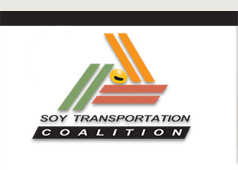 |
 |
|
| eNews • November 2011 | ||
| Promoting a Cost-Effective, Reliable and Competitive Transportation System |
||
 Manufacturing Jobs to Shift from China to U.S., Report Says
Manufacturing Jobs to Shift from China to U.S., Report Says
A big shift of manufacturing from China to the U.S. and other parts of North America will create up to 3 million U.S. jobs in coming years, says a study from Boston Consulting Group.
The report says labor costs in China are rising so fast, while U.S. productivity continues to climb, that the cost advantage of sourcing many types of goods production in China is rapidly shrinking.
“Factor in shipping, inventory costs and other considerations,” and for many types of goods “the cost gap between sourcing in China and manufacturing in the U.S. will be minimal,” according to the report.
The report, titled “Made in America, Again,” cites various examples of companies already shifting work back to the U.S. and says that process will quickly speed up.
The move of jobs and production back to this country is often called “re-shoring,” and some organizations are promoting policies to spur greater returns of factory jobs from overseas.
In just five years, BCG said, “the total cost of production for many products will be only about 10 to 15 percent less in Chinese coastal cities than in some parts of the U.S. where factories are likely to be built,” before counting shipping costs.
But the report said ocean shipping rates have risen in recent years, mainly because of spiking bunker fuel prices since the depths of the recession in 2009, while a shortage of container port capacity projected in 2015 and a falloff in shipbuilding could push rates higher.
The authors said the steady appreciation of China’s currency against the U.S. dollar is another factor raising the cost of goods made there, while trade disputes continue over many products made in China and the ocean supply chain is subject to threat of disruptions.
BCG said several southern U.S. states “will turn out to be among the least expensive production sites in the industrialized world.” Mexico is also getting some of the output shifting from China, and can deliver goods into the U.S. in one or two days compared with 21 by ocean. But BCG officials said Mexico would not benefit as much as some expect because U.S. expertise in many goods would draw the work back here instead.
The group said industries most likely to see a production shift back to the U.S. are transportation goods, electrical equipment and appliances, furniture, plastics and rubber products, machinery, fabricated metal products, and electronics. “Together, these seven industry groups could add $100 billion in output to the U.S. economy and lower the U.S. non-oil trade deficit by 20 to 35 percent,” BCG said.
BCG is an international business management advisory firm with offices in 42 countries.
Source: Journal of Commerce
Soy Transportation Coalition |
|
